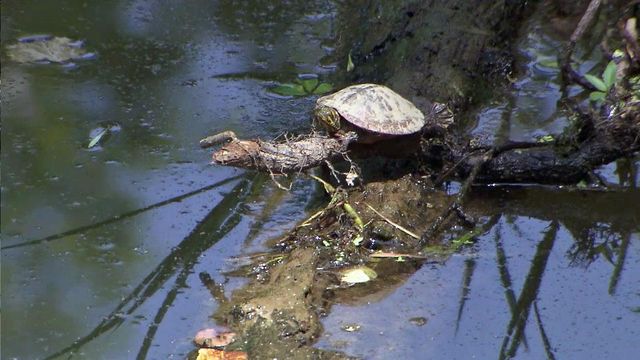Environmental group: Haw River is one of nation's most endangered
An environmental advocacy group has listed North Carolina's Haw River among the most endangered in the country, saying polluted runoff threatens drinking water supplies and recreational activities along the waterway.
Posted — UpdatedThe Haw River flows 110 miles from the north-central Piedmont to the Cape Fear River, just below the Jordan Lake Reservoir. The river and its watershed provide drinking water to hundreds of thousands of people living in Greensboro, Burlington, Chapel Hill, Cary and Durham.
The main threat to the river is caused by polluted runoff, or rainwater that picks up pollution as it flows over roads and parking lots, and sewage leaking from outdated and overtaxed water pipes, the group said. The pollution has caused large algal blooms in Jordan Lake, which impacts the health of people and fish.
"The river has been under the threat of stormwater pollution and wastewater pollution for a while, and we've had an opportunity to deal with that," Peter Rabbe, the North Carolina Conservation Director for American Rivers, said. "Unfortunately, we've been delaying the cleanup plan for the Haw River mainly because I think folks think it's only about Jordan Lake. That's just not true, it's really an issue for the entire watershed."
The General Assembly passed the “Jordan Lake Rules” in 2009 to cut pollution and runoff flowing into Jordan Lake from upstream sources by 35 percent, but in 2013, the state Senate passed a bill that repealed the rules for everyone in the Jordan Lake watershed.
Developers and some municipalities have also discussed installing 36 mixers into Jordan Lake to attempt to reduce algae.
"The circulators are not necessarily the best idea. You would only go to something like that if you've given up on cleaning the lake and only want to treat the symptoms," Rabbe said. "If we actually go to the center of the problem and deal with the pollution, we can help restore this resource for the whole area."
Elaine Chiosso, the Haw Riverkeeper for Haw River Assembly, said in a statement Wednesday that the General Assembly should implement the original "Jordan Lake Rules."
“The clock started ticking on the state and federal mandate to clean up the pollution in the river and Jordan Lake back in 2002, when it made the federal ‘Impaired Waters List’,” she said. “It took seven more years to draft and pass these rules in 2009, and since then the state’s legislature has been delaying and weakening them. Clean water is essential to our lives and communities. It's time to implement the full rules, now.”
• Credits
Copyright 2024 by Capitol Broadcasting Company. All rights reserved. This material may not be published, broadcast, rewritten or redistributed.





